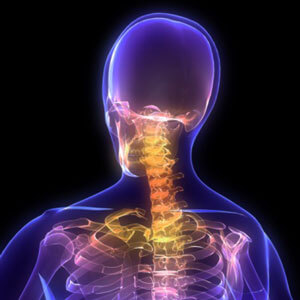 When we think about spinal health, our focus often centers on the lower back or the mid-spine. However, the uppermost vertebra, known as the atlas, plays an equally critical role in maintaining overall spinal and neurological health. Dr. Stackis emphasizes the importance of this small but vital vertebra in several key areas of well-being.
When we think about spinal health, our focus often centers on the lower back or the mid-spine. However, the uppermost vertebra, known as the atlas, plays an equally critical role in maintaining overall spinal and neurological health. Dr. Stackis emphasizes the importance of this small but vital vertebra in several key areas of well-being.
The Foundation of the Skull
The atlas vertebra is the first cervical vertebra and serves as the foundational support for the skull. The atlas is the foundation of the skull. It has to balance that skull, which is about 10 to 12 pounds, on a tiny little bone.
This alignment is crucial; any misalignment of the atlas can stress the entire spinal system. Given its role in supporting the weight of the head and providing the necessary range of motion, maintaining its proper alignment is essential for overall health.
Impact of Atlas Misalignment on the Central Nervous System
The atlas vertebra’s proximity to the brainstem means that its alignment directly affects neurological function. Dr. Stackis noted, “Part of the brainstem drops down into those upper neck vertebrae, and if there’s any misalignment there, it can have an impact on the brainstem itself, putting undue stress on it.” This stress can disrupt the brainstem’s ability to communicate effectively with the rest of the body, potentially leading to widespread issues.
Symptoms and Conditions Related to Misalignment
Misalignment of the atlas can manifest in a variety of symptoms. “Headaches are very common with people who have misalignments of their atlas, along with dizziness, balance issues, and even sinus problems,” said Dr. Stackis. Moreover, misalignment can also contribute to neck pain and TMJ disorders, as the misaligned vertebra affects the balance and alignment of the head and neck.
The Importance of Making a Correction
Correcting misalignments of the atlas can lead to significant improvements in quality of life. Many patients experience relief from chronic headaches, neck pain, and other related symptoms once their atlas is properly aligned.
“We’ve had patients see big improvements in their energy levels and overall well-being,” said Dr. Stackis.
Whether you’re struggling with common ailments or looking to enhance your overall health, ensuring the atlas is properly aligned can make a substantial difference.
If you’re experiencing symptoms such as persistent headaches, dizziness, or neck pain, it might be time to get your atlas vertebra checked. Contact our office today to schedule an appointment with Dr. Stackis.
